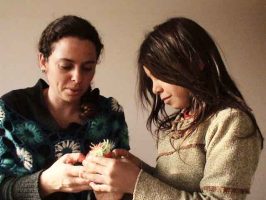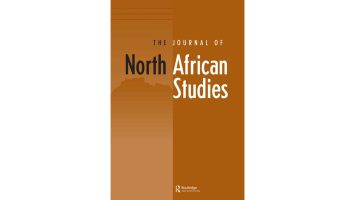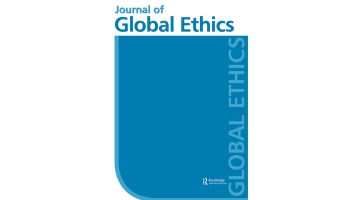Global Issues
What happens at the junctions of policy, politics, and power?
The Rock Ethics Institute is committed to researching topics related to a wide array of challenges facing globalized society, from the food we eat to the impact of conflict zones and changing patterns of immigration.
Sponsored Research
Principal Investigator:
Children and youth are the largest populations in conflict zones. Since they are most impacted, this Initiative aims to shine the spotlight on media rights and uses that best aid and empower children and youth. Convened by Rock Ethics Institute research associate Yael Warshel (co-convened with Idan Shalevof Penn State’s Department of Biobehavioral Health and Oana Albuof the Copenhagen Business School), the Initiative established the Children, Media, and Conflict Zones Lab in the Bellisario College of Communication to achieve its aims.
Principal Investigators:
It is widely accepted that the international community has strong moral duties to protect refugees’ human rights. Our initiative subjects conventional models of refugee protection to three levels of critical scrutiny. Firstly, we propose a fundamental human interest not yet recognized in the Universal Declaration of Human Rights. We argue for a broader human right to communicate that entitles refugees to the provision of minimally decent communication technologies. Secondly, the “conventional model” is state-centric. It presumes that the actors responsible for human rights provision are sovereign states, and that refugees must either return to a state of origin or join new ones. Against this, we theorize alternatives like the creation of new global institutions or reorganization of the international order. Thirdly, we explicate a number of problematic assumptions often made about refugees, e.g. the belief that they are always sedentarized within a fixed territory. The existence of traditionally nomadic refugee groups like the Sahrawi must be recognized and accommodated. For the 2021-2022 year, we focused on analyses of literature relevant to the evolution in human rights norms away from “freedom of expression” to the “right to communicate,” an evolution, which, however, still does not provide remedy for refugees.
Principal Investigator
According to the World Health Organization, antimicrobial resistance (AMR) is a serious threat to global public health and it requires action across all government sectors and society (WHO 2018). Antimicrobial resistance is argued to be putting at risk not only humans, but the world’s ability to achieve the United Nations Sustainable Development Goals (SDGs). Humans and agricultural animals situated in industrialized countries are considered large contributors to AMR due to overconsumption, with animal agriculture utilizing the most antibiotics—70 percent of all sales in the U.S. (Thorton 2017; Van Boeckel et al. 2015). Also contributing to AMR is inappropriate use of antibiotics. In Rwanda, due to lack of access to and appropriate regulation of pharmaceutical use for animals it is possible we find higher rates of AMR among farm located closer to urban populations (where there is increased access to antibiotic use) and among lower-income farmers who do not have enough money to purchase the appropriate amount of pharmaceuticals to treat sick animals. Our study seeks to better understand how antibiotic use on farms contributes to AMR. This study will be among the first of its kind to study (a) how farmers decide when to use antibiotics and (b) if the amount of antibiotic use contributes to AMR.
Related News
Related Publications







